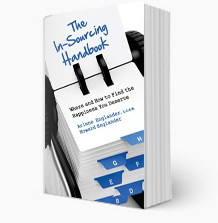Are you done? It’s my turn to talk.
All too often that is the ‘conversation’ that takes place when even the most committed of couples have a conflict that puts them at odds with each other. Lacking an open mind toward those with whom we disagree there is a tendency to double down when confronted by an opposing argument, raising the volume rather than hearing out the dissenting assertion and considering its validity.
Thinking you have delivered a communication that is crystal clear to you but seemingly ignored by the other party is one of the major causes of frustration. Exasperated by the deaf ears the inclination is to talk louder, and louder still. But even the highest volume shouting won’t be heard when in reality the other person is simply waiting to take his or her turn to ramp up the amps.
Competing for time on the soapbox, that is when disagreement becomes disagreeable.
To have a well-founded argument you must first have a thorough understanding of the opposing line of reasoning with which you take issue. You have to listen carefully. You have to respect the person you’re arguing with as a counterweight rather than an enemy, leave space for a benefit of doubt and allow at least a smidgen of possibility that you might be persuaded to alter your position.
Otherwise, why bother to engage? A disagreement in and of itself is not a bad thing. Quite the contrary; it can lead to mutual respect, admiration for novel ideas and when building on each other’s line of reasoning rather than tearing them down, a chance for a seminal moment when two and two make five.
But it starts with conscious listening. Rather than responding to another’s argument with an immediate rebuke and rebuttal, be alert to any emotional charge that might be present and take time to listen and fully understand.
There’s an actual strategy to listening regardless of the intensity of the disagreement. Instead of screaming “I’m right and you’re wrong” here’s how conscious listening may temper the furor.
As simplistic as it may seem, ‘mirroring’ what the other person says can be important for clarity. What I heard you say is that you don’t want to visit my family for Christmas.
Having made sure you’re heard what was said accurately, ‘validating’ the other person’s words adds understanding of their position. So I get it that you’re angry at my brother for ignoring your contributions to the dinner conversation.
Now that you fully understand the opposing position it’s important to show ‘empathy’ for the speaker to insure that the debate doesn’t turn into a personal attack. I know how hurt you must be by that regrettable behavior and I wouldn’t like it either.
Now the interchange is drained of the toxicity, the crucial prerequisite of civilized disagreement. Having been listened to without the disdain that sets tempers soaring, there’s no need for the person on the other side of the table to be defensive and the goodwill can be returned without ceding a loss of ground.
Now it is your turn to talk… and to be heard. The thing is, my parents are getting old and I don’t know how much longer they’ll be around.
With the process repeated, Mirroring, Validating and Empathizing, there is at least a possibility for positions to be changed, and if not that, at least the acknowledgement that we agree to disagree in harmony.

